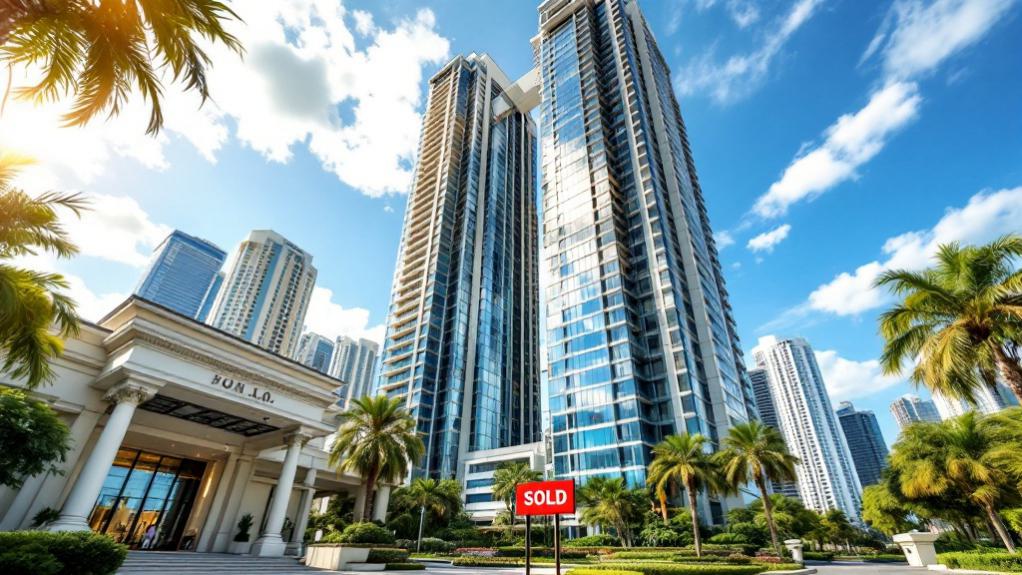Property taxation in Singapore operates on a progressive structure based on Annual Value (AV), which represents potential rental income. Residential properties face variable rates (0-32% for owner-occupied, 12-36% for non-owner-occupied), while non-residential properties incur a flat 10% tax rate. Payment is due annually by January 31st, with exemptions available for religious institutions and certain development projects. This system funds essential public services including infrastructure, education, and healthcare. Further exploration reveals additional nuances of this thorough taxation framework.

While many property owners in Singapore often view property taxation as a mere financial obligation, it fundamentally serves as a vital revenue mechanism for the government, enabling the funding of public infrastructure and essential services. This tax is levied on all property ownership within the country, regardless of whether the property generates rental income or remains vacant, and must be paid annually by January 31st to avoid incurring a 5% late payment penalty. The government allocates these tax revenues toward essential national priorities including infrastructure development, defense, education, and healthcare. The strategic tax policies align with Singapore’s reputation for maintaining a competitive tax system that balances revenue generation with economic growth.
The cornerstone of Singapore’s property tax system is the Annual Value (AV), which represents the estimated gross annual rent a property could reasonably generate in the open market. IRAS determines this value based on prevailing market rental rates, excluding furniture and maintenance fees, and conducts periodic reviews to guarantee alignment with current market conditions. Property owners can verify their property’s AV through IRAS’s e-service portal, which provides transparent access to this vital assessment metric.
Annual Value represents the property’s potential annual rental income in the open market and forms the basis of Singapore’s property tax calculations.
The tax structure in Singapore implements a progressive framework for residential properties, with significant distinctions between owner-occupied and non-owner-occupied properties. Owner-occupied residential properties benefit from more favorable rates, ranging from 0% for the first $8,000 of AV to 32% for portions exceeding $100,000, reflecting the government’s policy to encourage homeownership.
Conversely, non-owner-occupied residential properties face steeper rates from 12% to 36%, acknowledging their income-generating potential.
Non-residential properties, including commercial and industrial establishments such as offices, shops, factories, and warehouses, are subject to a flat 10% tax rate on their Annual Value, regardless of occupancy status. The property tax calculation follows a straightforward formula: Property Tax = Annual Value × applicable tax rate, with payment options including lump sum or GIRO installments.
Singapore’s property tax system also incorporates certain exemptions and relief measures, including full exemptions for qualified religious and charitable institutions, partial exemptions for land under development, and specialized programs allowing tax deferment for elderly owners of HDB flats under specific conditions.
Frequently Asked Questions
How Can I Appeal Against My Property Tax Assessment?
Property owners must file an appeal with the Valuation Review Board within 30 days of receiving their assessment notice.
The process requires submission of a Notice of Appeal, followed by a detailed Petition of Appeal outlining specific grounds for contesting the valuation. A filing fee of S$50 applies for owner-occupied properties.
Appeals can address incorrect annual value assessments, comparable property disparities, property condition changes, or factual errors in measurement data.
Are Foreigners Taxed Differently on Singapore Property?
Foreigners face distinct tax treatment for Singapore property ownership, primarily through a 60% Additional Buyer’s Stamp Duty on any residential property purchase, compared to the tiered structure for citizens and permanent residents.
Additionally, foreigners typically incur non-owner-occupied property tax rates of 12-36% of Annual Value, unless they maintain Singapore residency status.
For rental income, non-residents are taxed at a flat 22% rate rather than the progressive taxation system available to tax residents.
What Property Tax Exemptions Exist for Vacant Properties?
Singapore offers limited property tax exemptions for vacant properties.
Vacant land under approved development qualifies for exemption from foundation commencement until either Temporary Occupation Permit issuance or two years, whichever occurs first.
Properties used for religious worship, government-aided schools, or charitable purposes may receive exemptions.
Standard vacant residential properties receive no exemptions and are taxed at non-owner-occupied rates of 10-20% of Annual Value regardless of occupancy status.
How Does En-Bloc Sale Affect My Property Tax Obligations?
During an en-bloc sale process, property owners remain liable for property tax until the completion date, at which point they may receive pro-rated tax refunds for advance payments.
Post-sale, the Annual Value (AV) is reassessed based on the enhanced land value, with the developer assuming tax responsibilities at 5% of the site’s estimated market value.
For owners facing Seller’s Stamp Duty obligations within three years of purchase, rates range from 4% to 12%, decreasing with holding period.
Can CPF Funds Be Used to Pay Property Tax?
CPF funds cannot be used directly to pay property tax in Singapore.
The Central Provident Fund system, while designed to facilitate property ownership through mortgage financing and down payments, explicitly excludes property tax payments from its approved utilization categories.
Property owners must employ alternative payment methods, including GIRO arrangements, PayNow QR, AXS platforms, internet banking, or telegraphic transfers, to fulfill their annual property tax obligations to the Inland Revenue Authority of Singapore.





